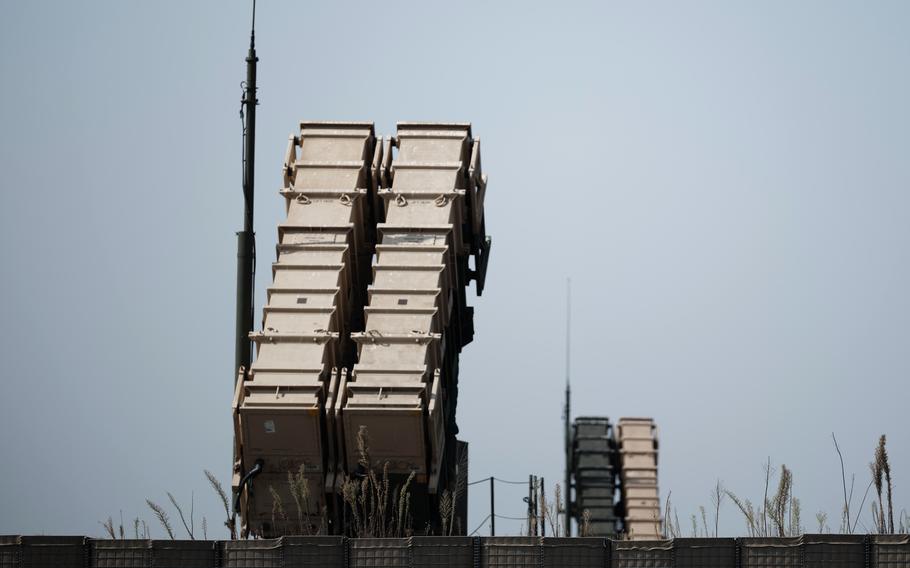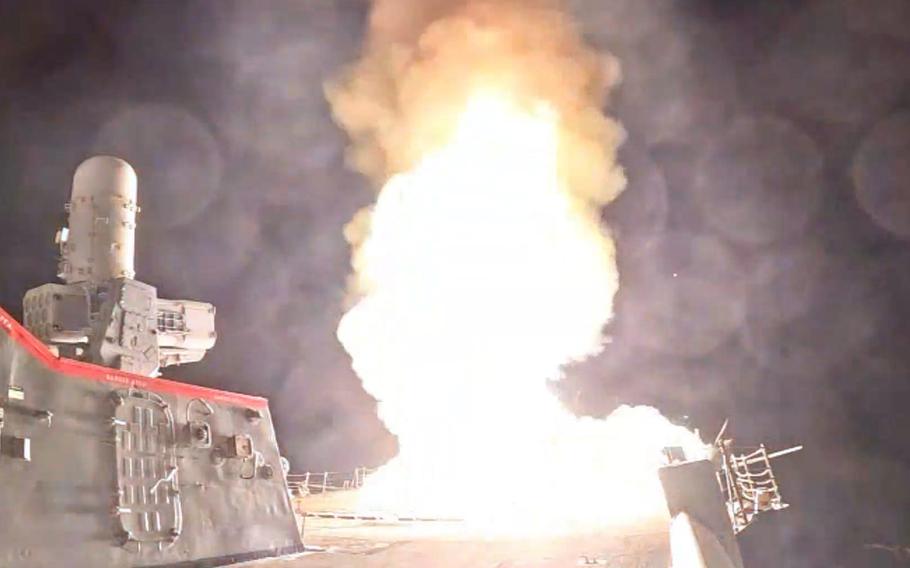
U.S. Army Patriot missile launchers are set up in southeastern Poland on Sept. 4, 2024. The White House remains opposed to helping Ukraine defend itself against Russian airstrikes by launching interceptors from NATO territory. (Robert Wormley/U.S. Army)
The United States helped Israel shoot down Iranian missile attacks in recent days while shooting down Ukraine’s request to do the same against Russian missiles.
The two conflicts represent very different landscapes and battlefields, Pentagon spokeswoman Sabrina Singh said.
“We feel that Ukraine has been able to successfully defend against Russian strikes to their cities, to their populations, to their infrastructure,” Singh told reporters Thursday.
The White House remains opposed to such action even if air defense strikes were launched from inside NATO territory without the need for putting allied boots on the ground in Ukraine.
While Ukraine has had some success in countering airstrikes, its defenses have frequently been overwhelmed by Russian bombardments, which have left many cities and towns in ruins.
“Jointly intercepting Iranian missiles is no different from jointly intercepting Russian missiles,” Ukrainian President Volodymyr Zelenskyy said Thursday during a visit to Kyiv by new NATO Secretary-General Mark Rutte. “What we need in our region is more determination from our partners to put an end to Russian terror.”

A missile is launched from the USS Bulkeley in the eastern Mediterranean Sea in response to an Iranian air attack on Israel. The Defense Department this week turned down a request from Ukraine to help it defend against Russian air strikes in the same manner the United States is assisting Israel. (U.S. Navy)
Zelenskyy’s comparison aside, the wars the two countries are fighting and the relationships Ukraine and Israel have with the U.S. differ significantly.
For starters, Ukraine isn’t a NATO ally while Israel is one of Washington’s closest security partners.
Long-standing Western concern about military escalation with Russia, a nuclear power with vast resources, also factors into matters. Iran is acknowledged to be capable of enriching weapons-grade uranium but hasn’t produced a deliverable nuclear weapon.
Though Zelenskyy is pushing for NATO help in intercepting missiles, the 32-nation alliance isn’t showing an interest, even if countries such as Poland have expressed openness to the possibility.
The alliance appears ambivalent about even signaling that it will shoot down any Russian drones that cross into allied airspace. On Thursday, Rutte said that such a decision would be a matter for individual nations to decide.
“NATO has already significantly reinforced its air defenses on the eastern flank,” Rutte said. “And we recognize fully the rights of every ally to protect its own airspace.”
For its part, the U.S. has made significant contributions to bolstering those defenses, including the deployment of Patriot missile defense units to Poland. The U.S. and other allies also have supplied billions of dollars in weaponry to Ukraine, including air defense systems.
Still, the alliance hasn’t issued any direct warnings that airspace incursions such as drone crossings would be met with a military response under NATO’s banner.
Over the course of the war in Ukraine, Russian drones occasionally have crossed into alliance territory.
On Monday, NATO stepped up surveillance along Romania’s border with Ukraine after reports last week that a Russian drone had crossed into allied airspace a week earlier.
Perhaps the most recent NATO ally to take open military action against Russia for such violations was Turkey, which in 2015 shot down a Russian fighter plane that crossed into its airspace for under 20 seconds.
The Kremlin lashed out but never took any action against Turkey over the downing of the Russian jet. Four years later, Russia sold and delivered its own surface-to-air missile systems to Turkey.